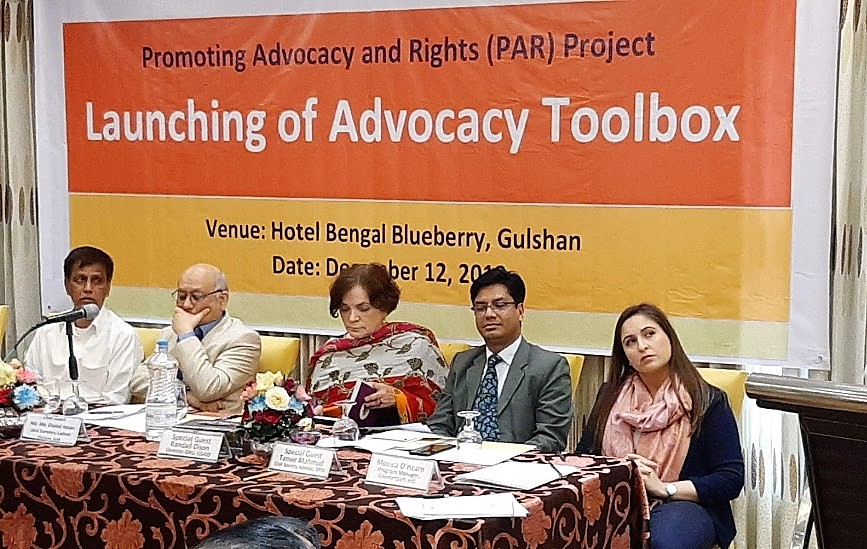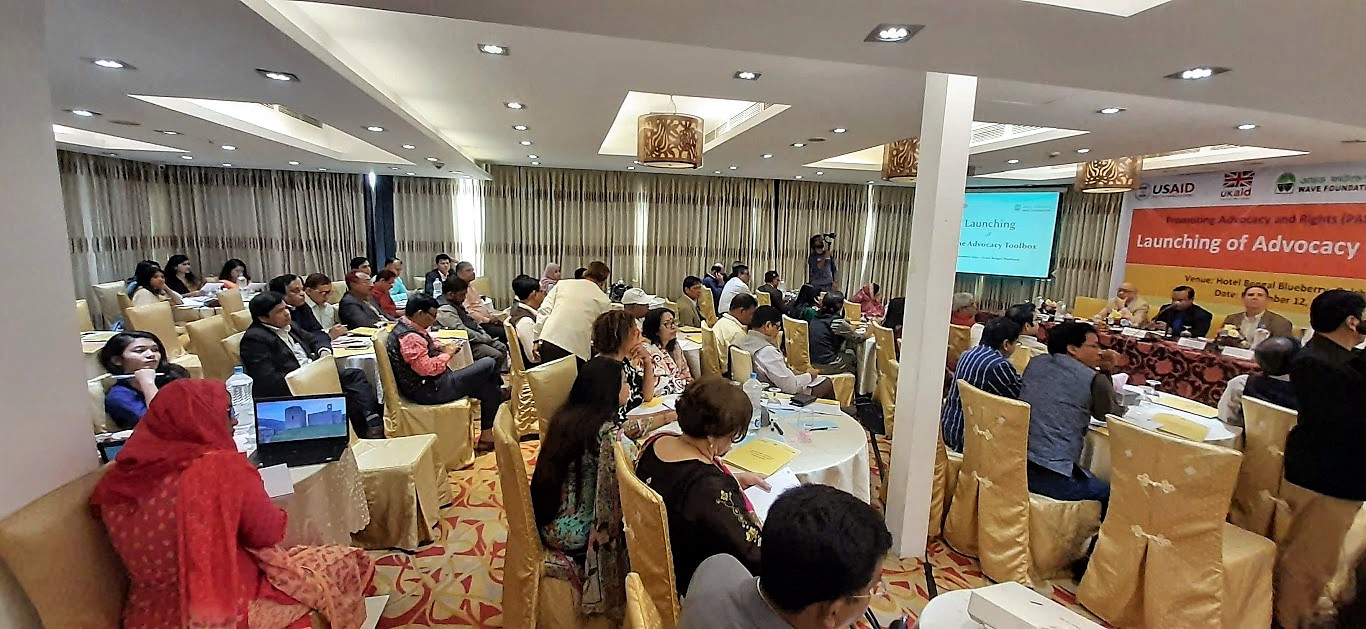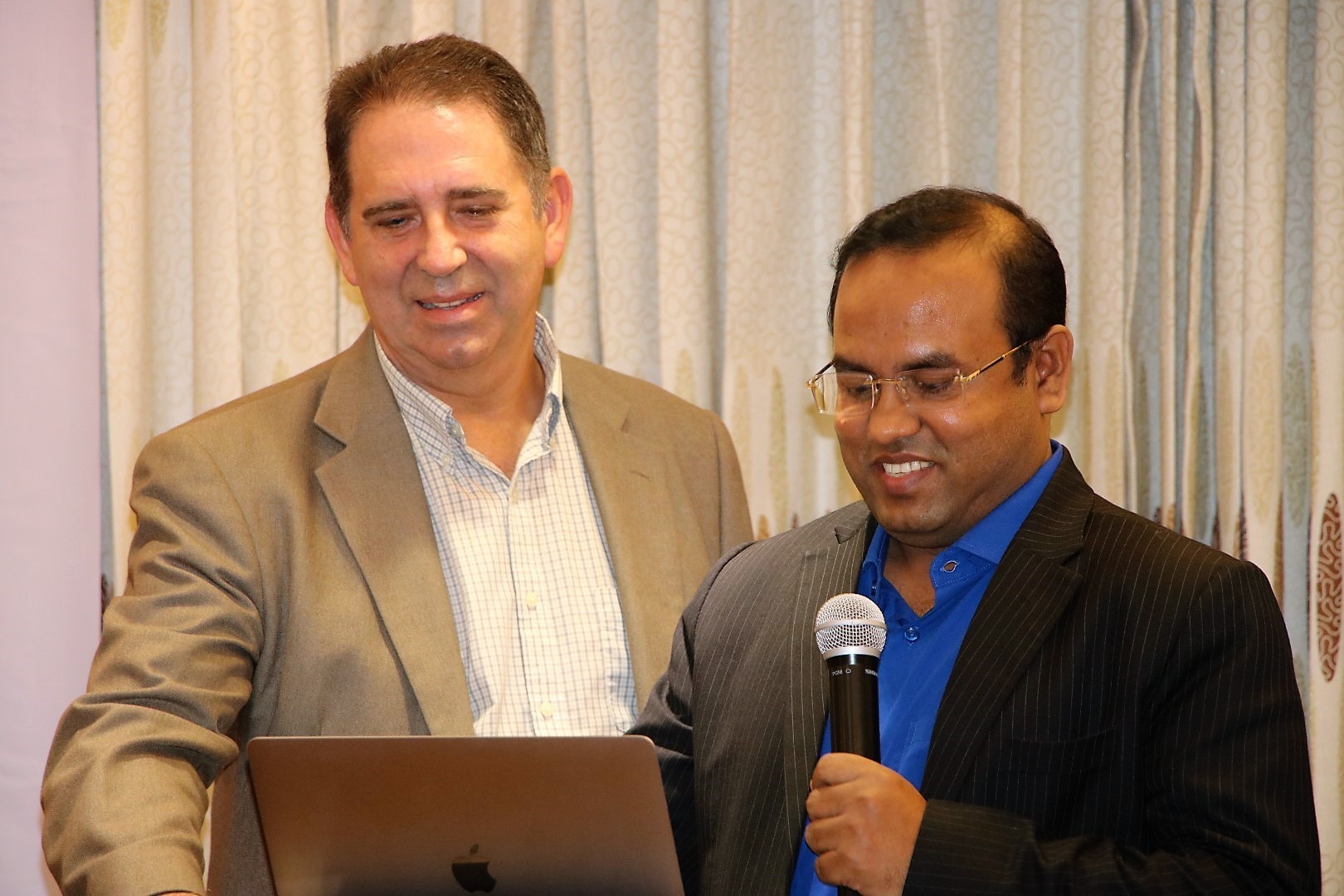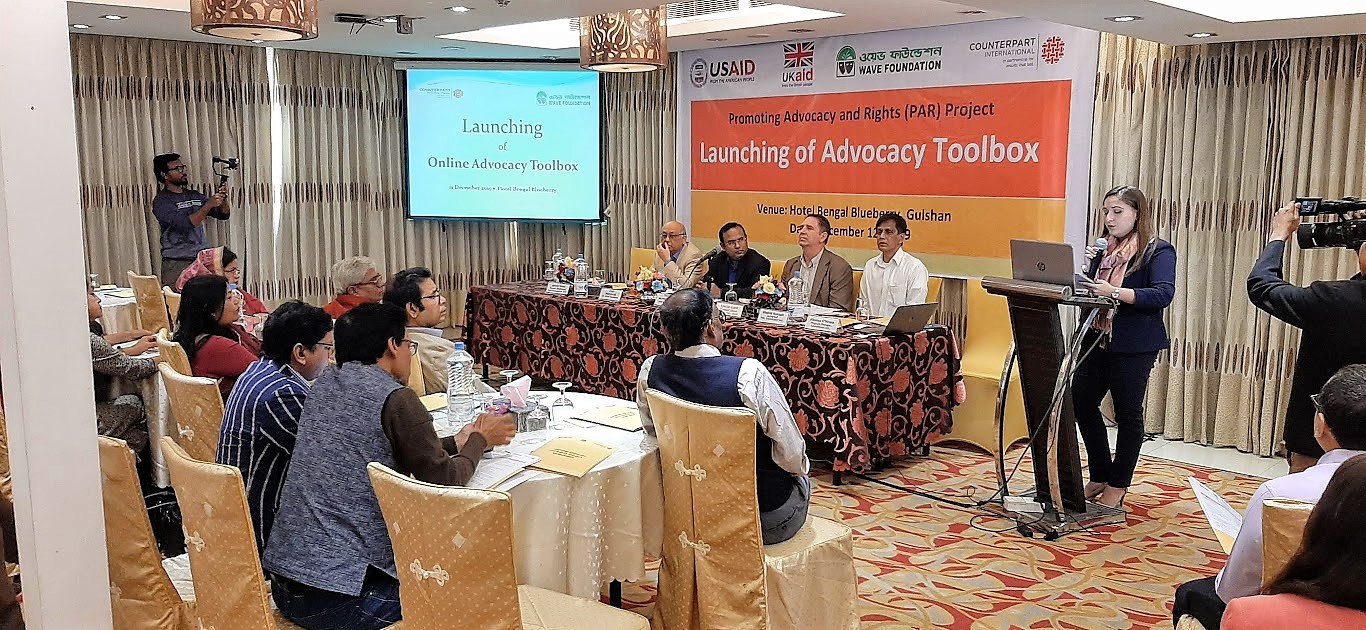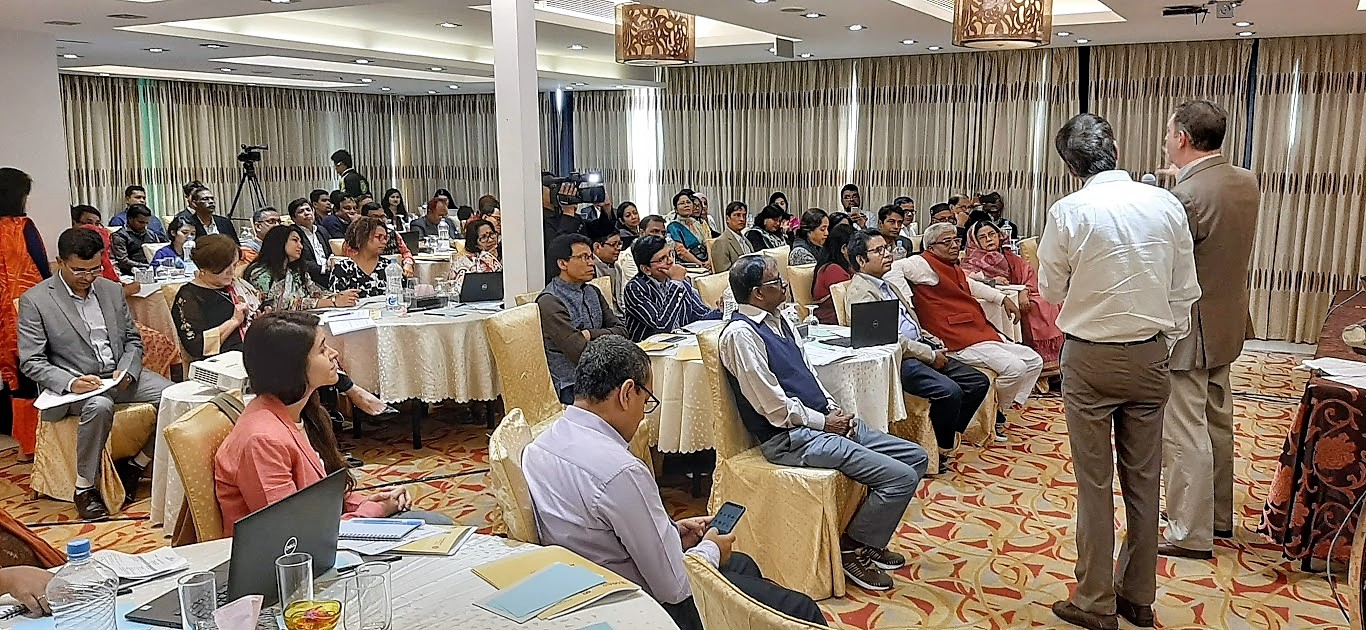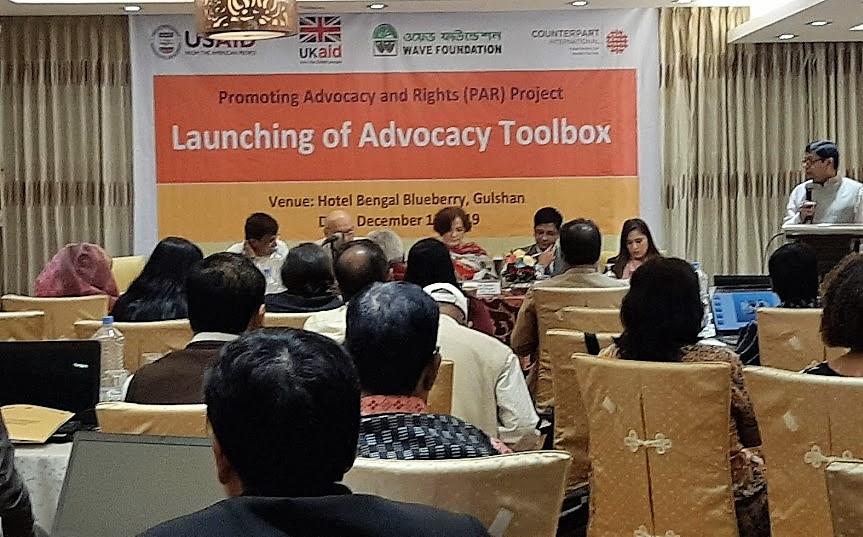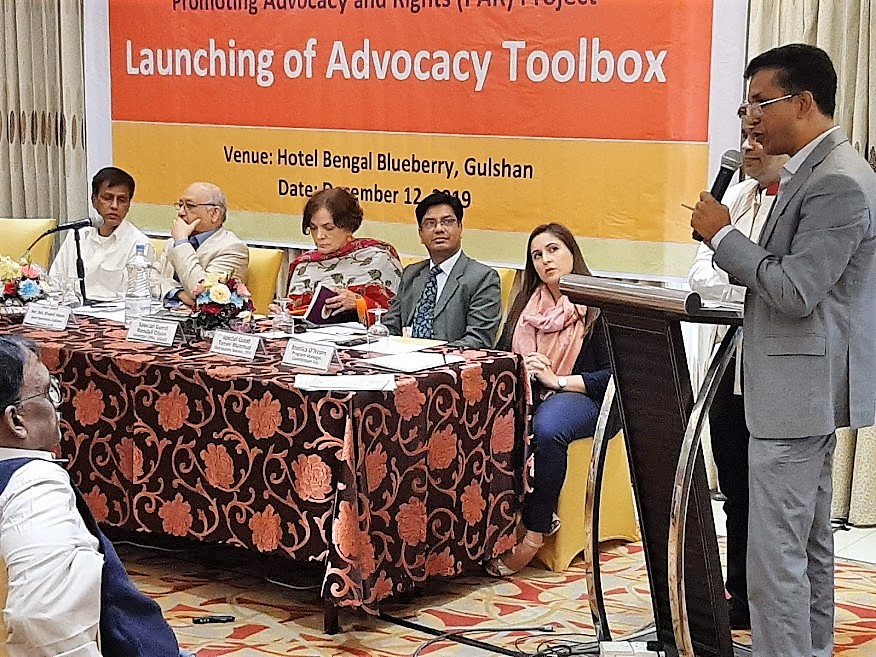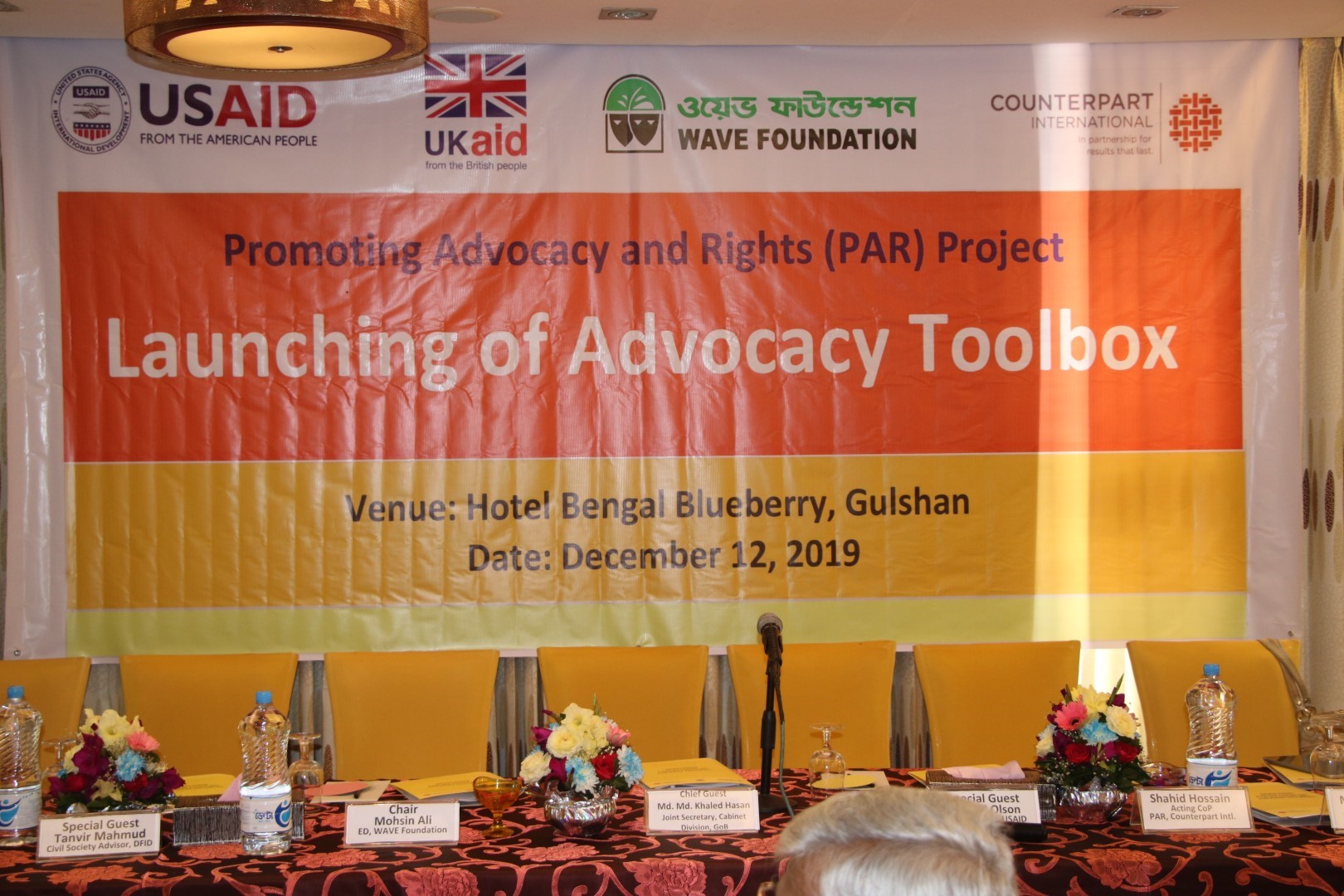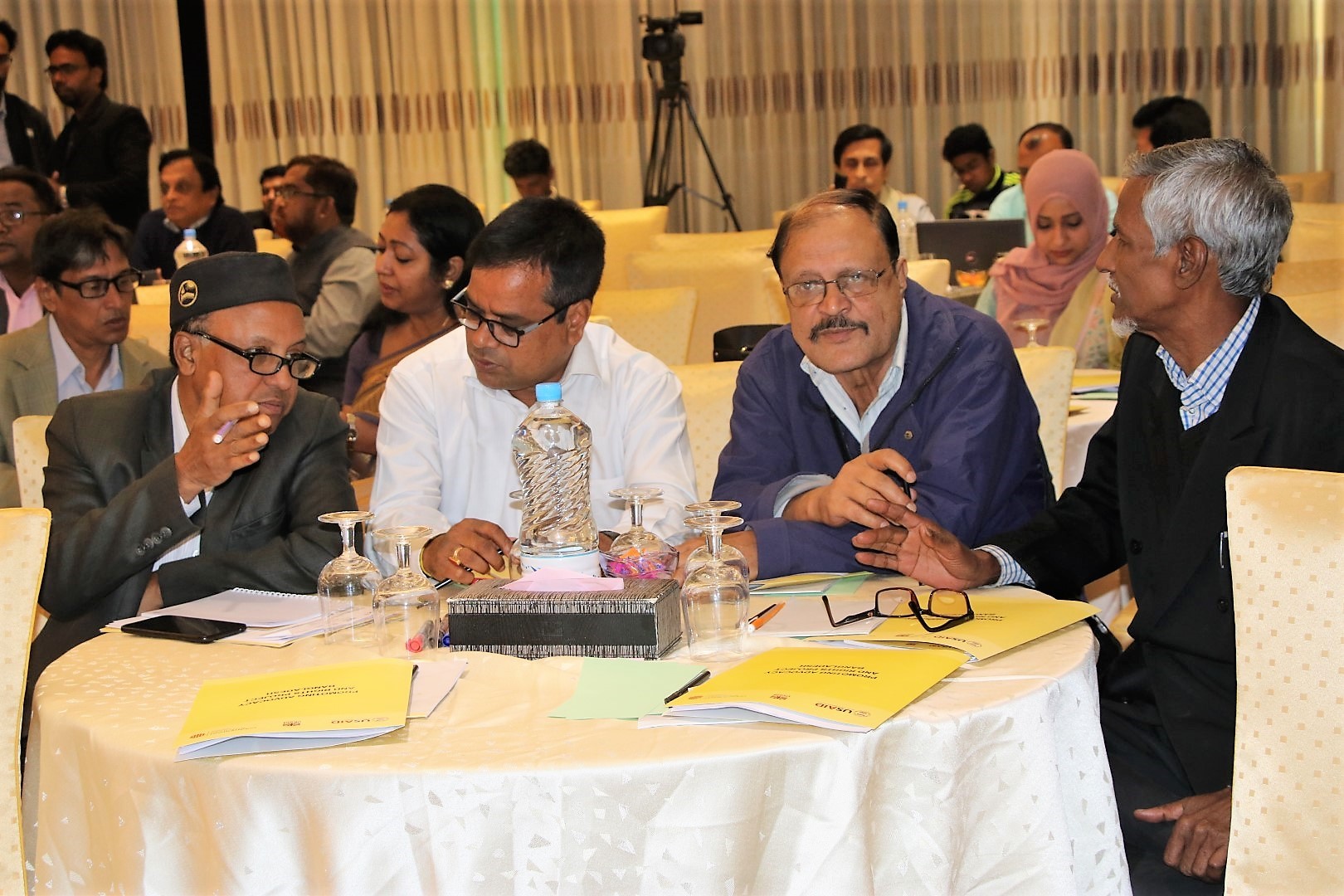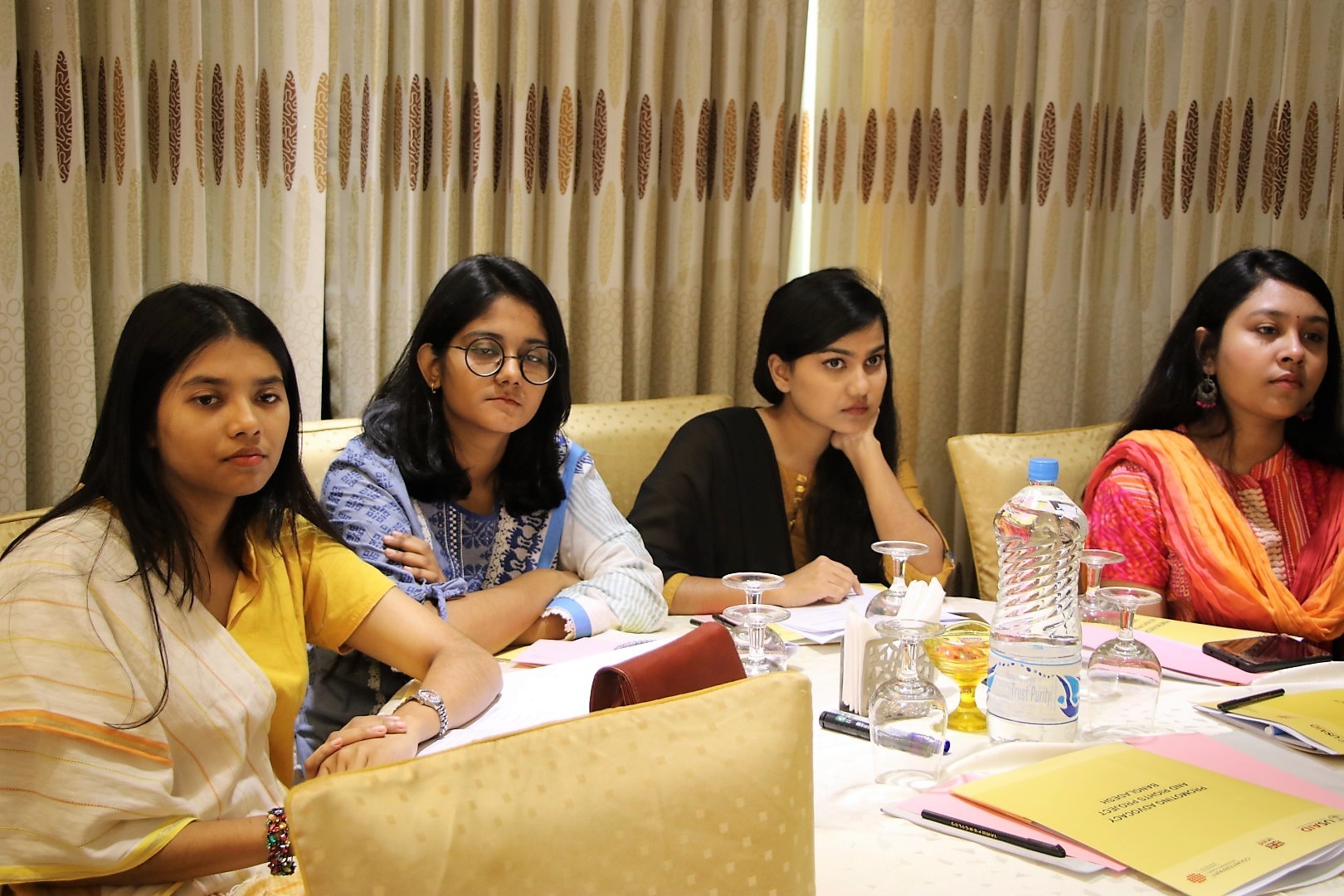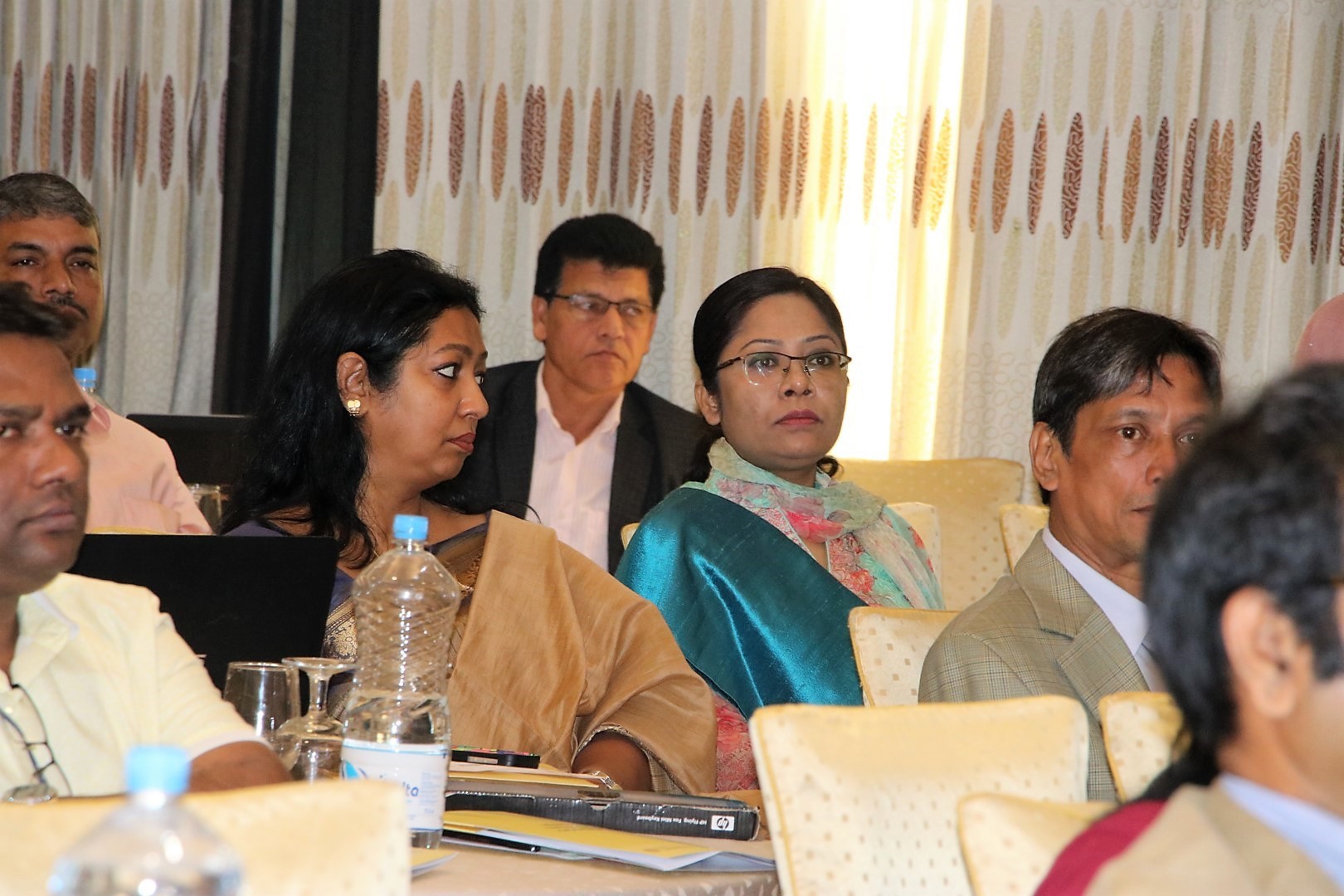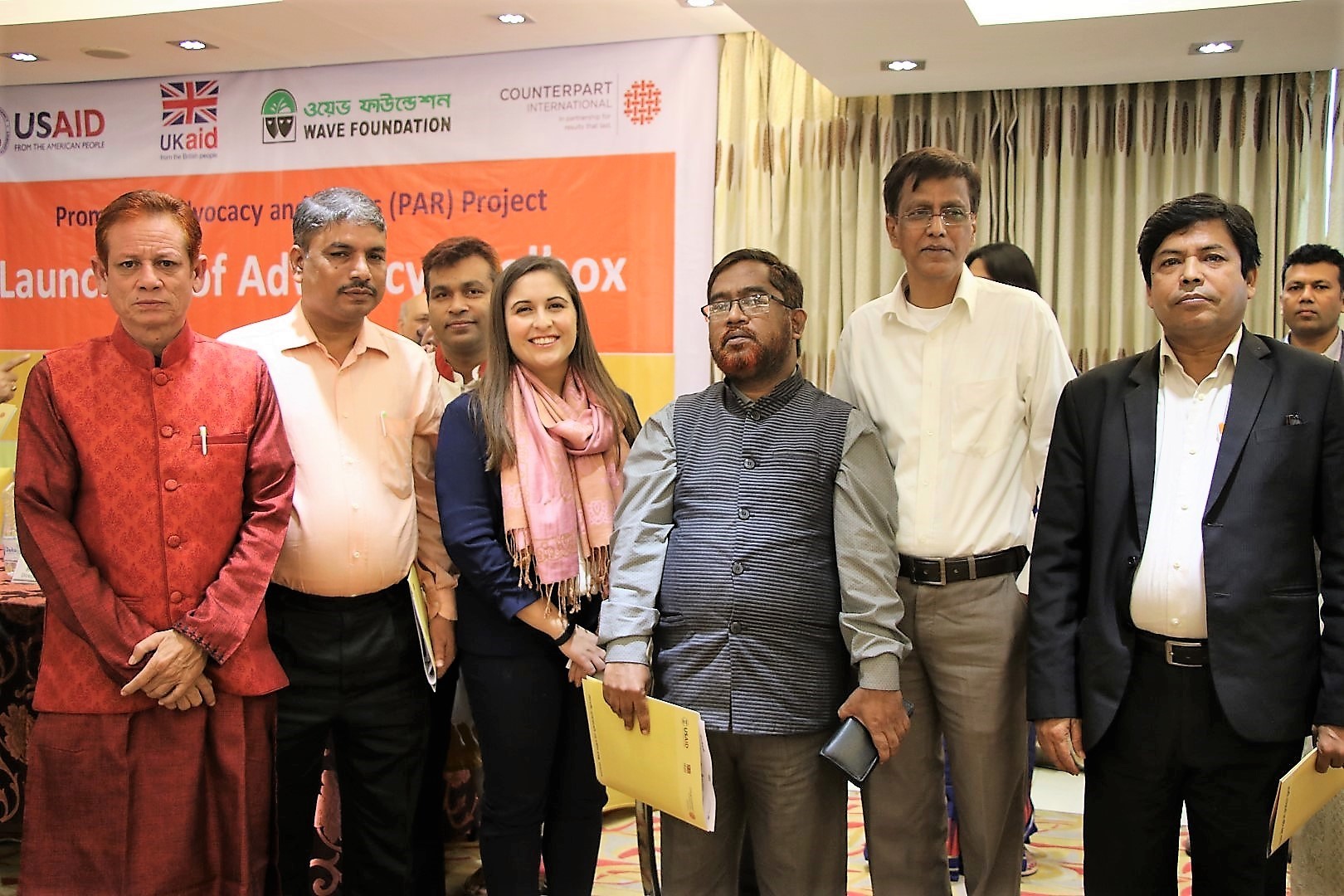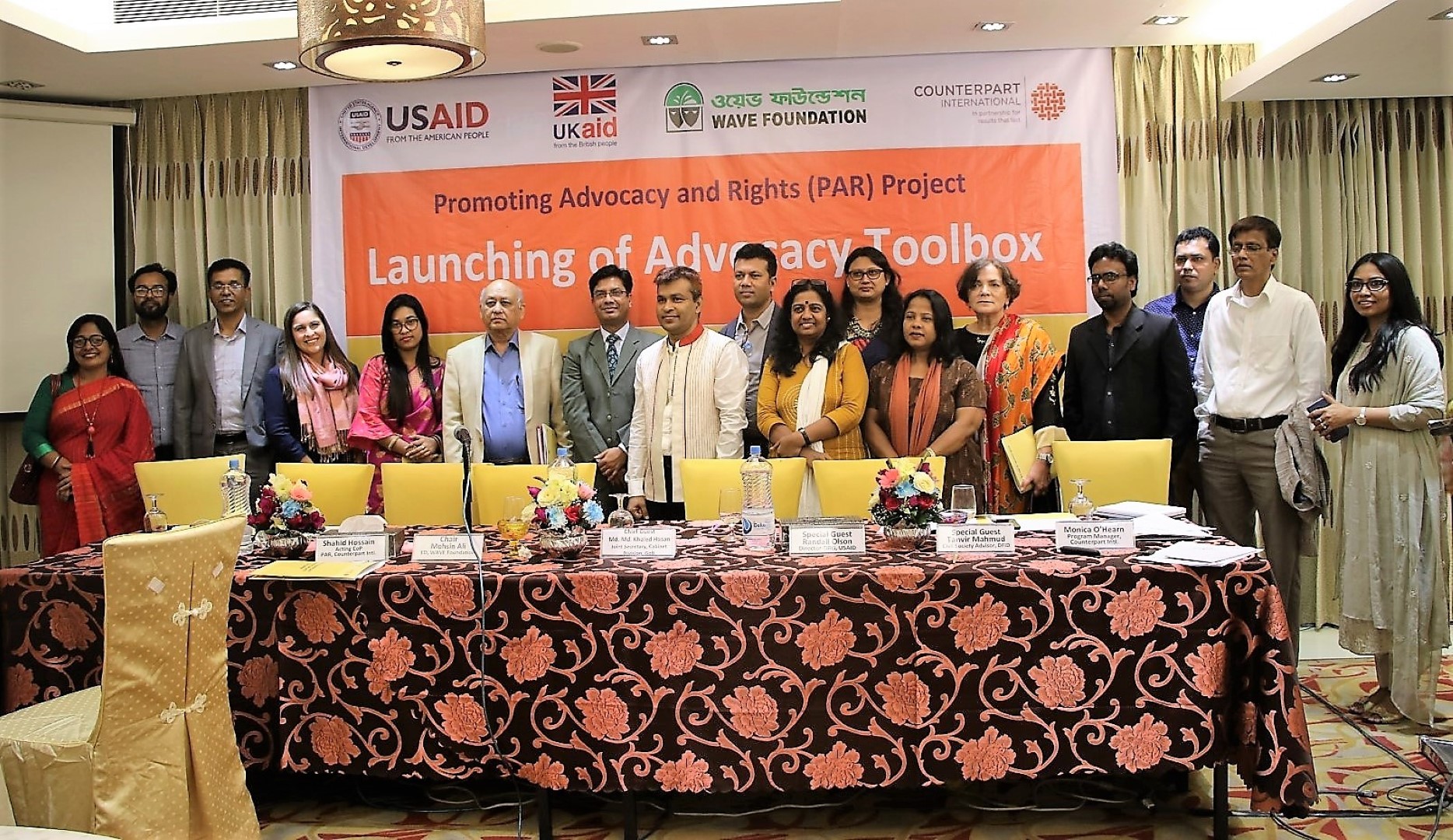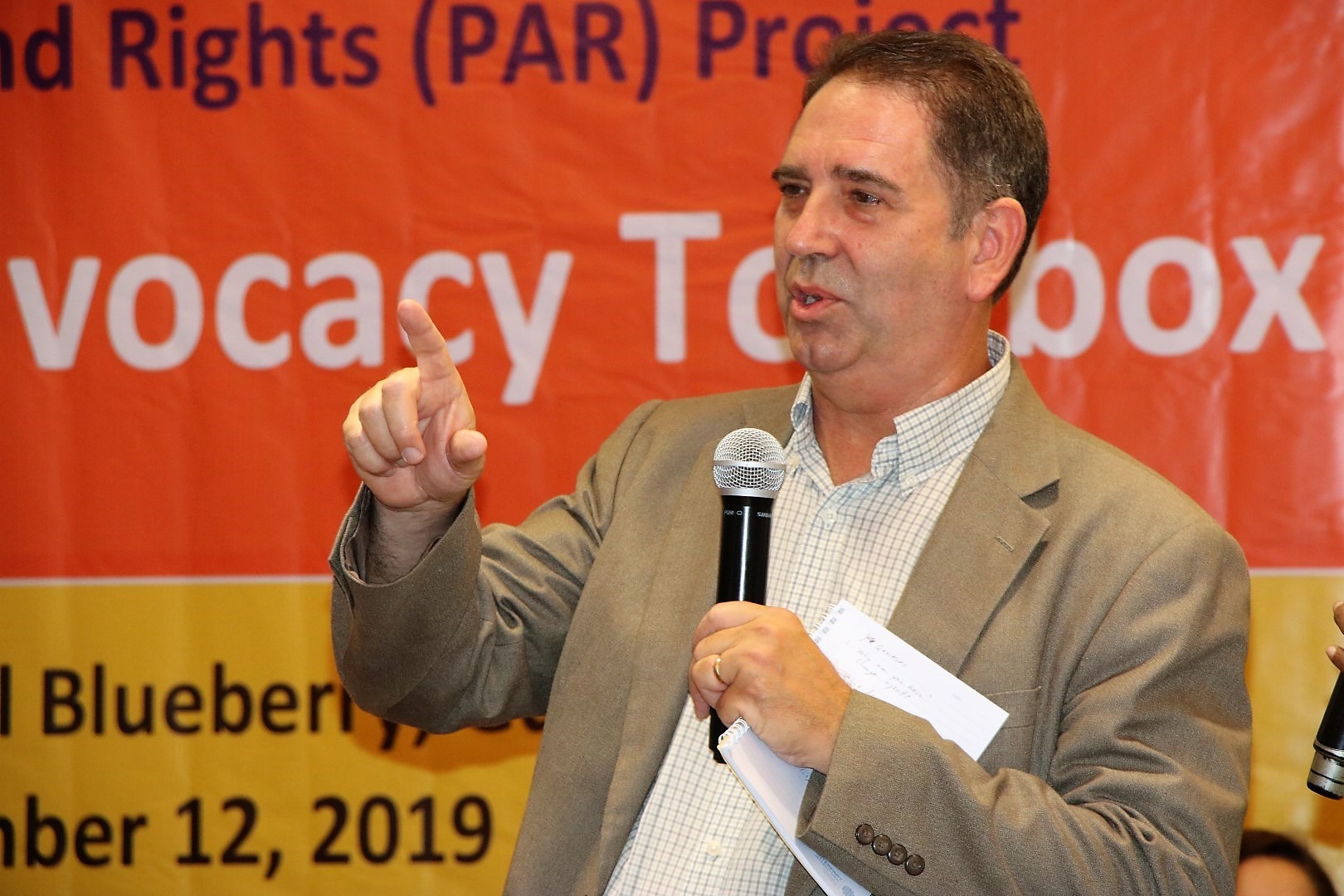The USAID and UKAID-funded PAR activity aims to strengthen the enabling environment for civil society institutions to advance democratic governance and citizen participation in Bangladesh. As part of PAR’s broad efforts to strengthen civil society’s capacity for advocacy, Counterpart International and its partner, the WAVE Foundation, developed an Online Advocacy Toolbox with training materials, advocacy planning templates, and examples of effective campaigns. The event was primarily designed to inform civil society representatives about resources curated in the Online Advocacy Toolbox, and to encourage civil society actors to apply these resources for their own advocacy efforts.
The Online Advocacy Toolbox website develops for a vibrant community of users and can provide high-quality and user-rated content, to use technology for capacity building it will be a tremendous technical resource for the community people, its member, and partner organizations. The toolbox content and resource would be enriched in quality and attractive for users. Day to day it’s organically developed through the involvement of more organizations.
Welcome remarks were given by Mr. Shahid Hossain (Acting Chief of Party, Promoting Advocacy and Right (PAR) Project) and highlighted that this advocacy toolbox will help CSOs in advocacy efforts, and that the toolbox is mutually reinforcing for Counterpart and WAVE. Ms. Monica O’Hearn (Program Manager, Counterpart International) also spoke about the benefits of advocacy efforts in strengthening development indicators in Bangladesh.
About Advocacy Toolbox
Mr. Mohsin Ali (Executive Director, WAVE Foundation) presented the advocacy toolbox and briefly talked about its uses and benefits. He talked about advocacy, the strategic process of creating measurable change & influencing those who make decisions about developing, changing and implementing policies. He also discussed the levels of advocacy, such as local/social advocacy, policy advocacy at a national level, and international level advocacy. Mr. Ali continued, talking on awareness raising, communications and media work, lobby& negotiation.
He pointed out significant advocacy successes in Bangladesh that were accelerated by CSOs:
- Upazila Parishad Act 2011
- Union Parishad Act 2009
- City Corporation Act 2011
- Right to information 2009
He talked about advocacy experiences and learning from advocacy successes. In the Bangladesh context, it is difficult to find proper documentation and advocacy success stories. This issue was one of many reasons why the advocacy toolbox was created, to increase access to and learning from advocacy related documents.
Special guest, Randall Olson (Director, Office of Democracy, Human Rights, and Governance, USAID). He commended the civil society organization representatives for representing their organizations as change agents and for their passion to enact change. He noted that civil society has strong history to do volunteerism & passion to make difference.
Chief Guest, Md. Khalid Hossain (Joint Secretary, Cabinet Division, Government of the People’s Republic of Bangladesh). At the outset of his speech Chief Guest Hossain officially launched the Online Advocacy Toolbox. He then briefly discussed the role of Cabinet Division and it will be important to link the Advocacy Toolbox with the National Integrity Strategy (NIS) and other Social Accountability Tools. He also mentioned that this is a wonderful platform of sharing and that others will greatly benefit and will hopefully contribute to the goal of overall good governance.
Visual Walk-through of the Advocacy Toolbox
Mr. Iftekhar Hossain (WAVE Foundation) & Azim Al Jabbar (PAR Project) visually walked the participants of the launch through the workings of the advocacy toolbox.
Select participant feedback on the Toolbox:
- Amit Dey (Action AID Bangladesh): He indicated that the documents or material (policy formulation, policy addition, policy subtraction, policy review) that organizations need for campaigns were previously not available in an organized way. That’s why CSOs faced so many difficulties in conducting advocacy efforts. In the future, this advocacy toolbox may become very effective for all.
- Najmul Hasan Dipu: He noted that this is an effective platform for learning for those who live in remote places. They can learn what is advocacy, how to do it, and how to organize it. He also expressed an interest in seeing the toolbox regularly updated.
- Arshaf Siddique said that vocabulary is very important for advocacy. We should use the local content so that people can easily understand. He also advised that this toolbox can be more effective by using local content. He also suggested engaging media while designing and implementing advocacy campaigns.
- Sharmin Khan (ICNL): She provided one suggestion, that a technical team can be formed to review the success stories before uploading onto the Toolbox. The Toolbox can really benefit from a cross-sectoral partnership where media and development organizations jointly work and share their experiences.
- Sanjum Kabir (Student-individual activist) noted: “This toolbox helps to establish good governance and enhance citizen skill and capacity. It is not easy to outreach at all levels. We can help promote this toolbox through media, social network, SMS & many other promotional tools.”
- Ruhi Das asked whether there any option to get feedback on content uploaded, which the team will consider how to integrate. One suggestion he also made was to make the toolbox more user friendly by making an Android application.
- Lipika Biswas (Democracy International) recommended that the process of policy formulation can be uploaded on this toolbox, including informative videos.
- Khaled Ahmed (The Daily Jalalbad) said that media can play a role to raise the visibility of advocacy actions through their outlets using material from the success stories uploaded.
Brief presentations of the new issue-focused Advocacy & Networking Grants
Rafiqul Islam (Executive Director, Rupantar) and K.S.M Tarique (Deputy Chief Executive, Light House) briefly talked about their organizations’ new projects on Gender-Based Violence and Drug Abuse, respectively. They discussed project design, approach, strategy, and workplan. These presentations served to raise the visibility of PAR’s advocacy activities so that other CSOs in the room can engage with the new grantees in their projects, as well as for CSOs to see the ways in which the Toolbox can be linked to activity implementation.
Call-to-Action
Syed Sultan Chand, PAR Project greetings everyone & said that this toolbox is of the CSO, by the CSO, for the CSO. He invited the CSOs to make a commitment on how to use the Toolbox. Some of the commitments by the participants included the following:
-
Several CSOs committed to an advocacy action, such as a rally or a dialogue session to raise visibility of an issue;
-
Several CSOs committed to working on the key priority issues raised during the presentation, including drug abuse and gender-based violence;
-
Some participants committed to raising the visibility of the Toolbox in different public forums, such as sub-district meetings;
-
Some participants committed to uploading case studies and success stories to the Toolbox.
Remark by Special Guest
Tanvir Mahmud, Civil Society Advisor, DFID said this is a wonderful platform to share information. CSOs have the ability to make great contributions to development, and the Advocacy Toolbox will help align interests between actors so that communication and sharing is strengthened. This is good initiative but difficult to sustain, and in this regard, it is important to make a commitment that we contribute successful effort, collective action, and positive engagement.
Remark by Slavica Radosevic, USAID Political Process Team Lead
She noted that this toolbox can be a good lesson for NGOs, and it will not be limited to only PAR or its network partner. Rather, it will be connected through the whole of Bangladesh through NGO networks. The promotional materials are very important for the toolbox.
Closing Remark
Mr. Mohsin Ali (Executive Director, WAVE Foundation) concluded with the following remarks: “We have a plan to make a window with the government and the private sector so that more people can be engaged with this platform. Thanks to everyone for participating in this program & making this program successful.”
Outcomes of the event:
- Launched the development of a community-driven and contextually appropriate repository of advocacy tools;
- Provided a platform for CSOs, individual activists, and organizational advocates to share information, exchange ideas on advocacy, and build relationships;
- Gathered and shared success stories, lessons, and opportunities for more effective advocacy.
The event was covered by one TV Channel ‘RTV’ and three newspapers.
The link of TV news clipping: https://youtu.be/ACyyUUU12Dk
Participant Breakdown from Launch Event
- Total: 75 participants
- Gender Breakdown: 45 male, 30 females
- Affiliations: 51 NGO representatives, 1 government official, 6 individual activists, 5 media representatives, 4 USAID representatives
- Ethnic affiliation: 1 ethnic minority participant
The website named Advocacy Toolbox ( https://advocacytoolbox.org ) has been officially launched on December 12, 2019 at Hotel Blueberry in Gulshan 2, Dhaka, jointly ventured by Counterpart International Bangladesh and the Wave Foundation. This toolbox is developed under PAR (Promoting Advocacy and Rights) -project and jointly funded by USAID and DIFID.

